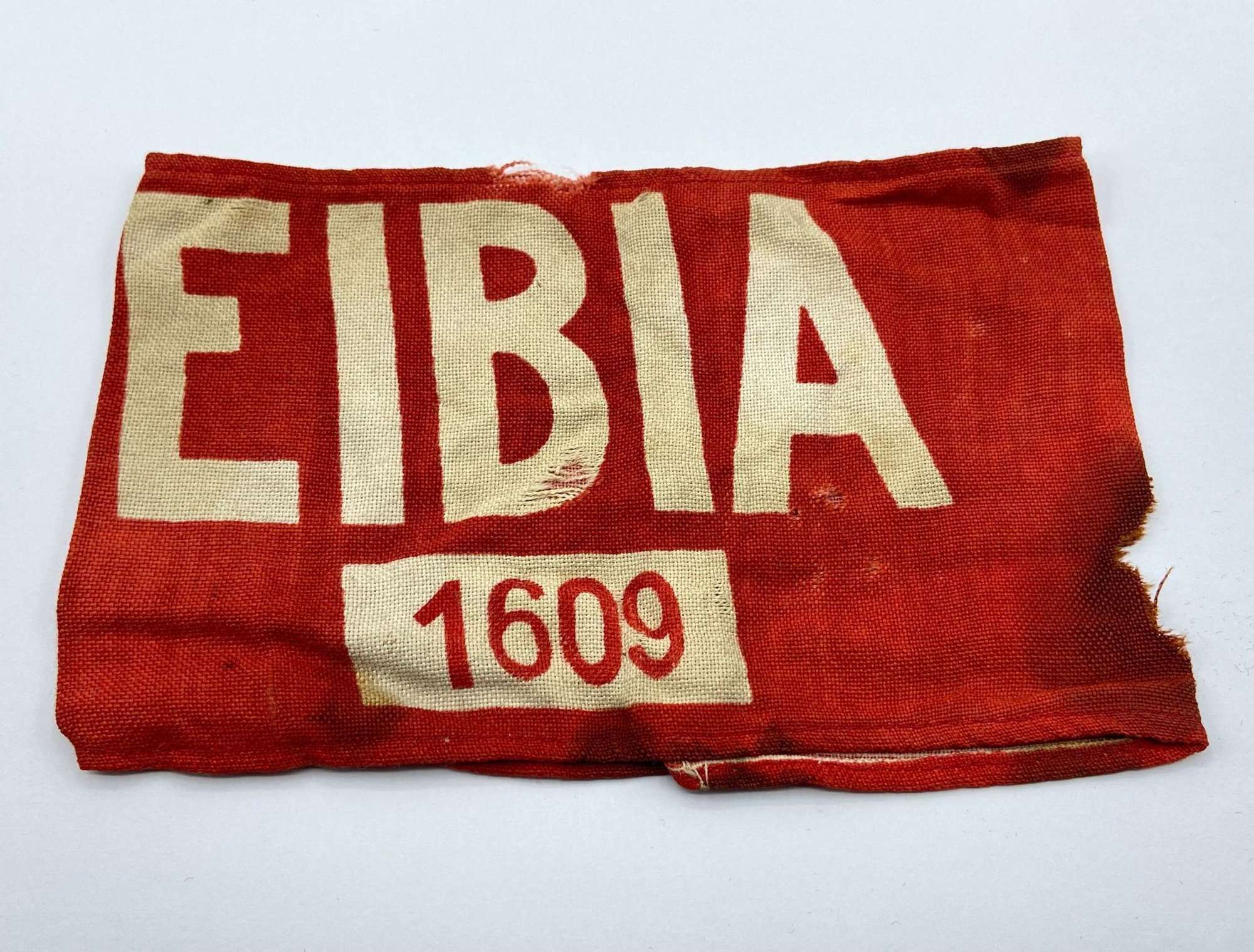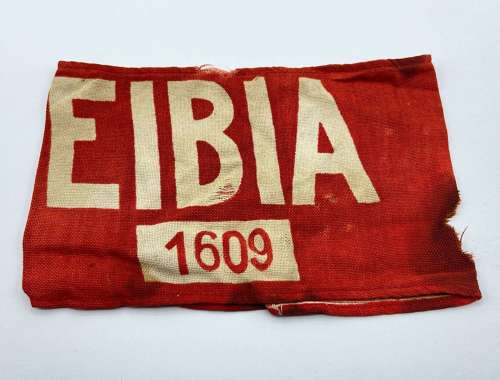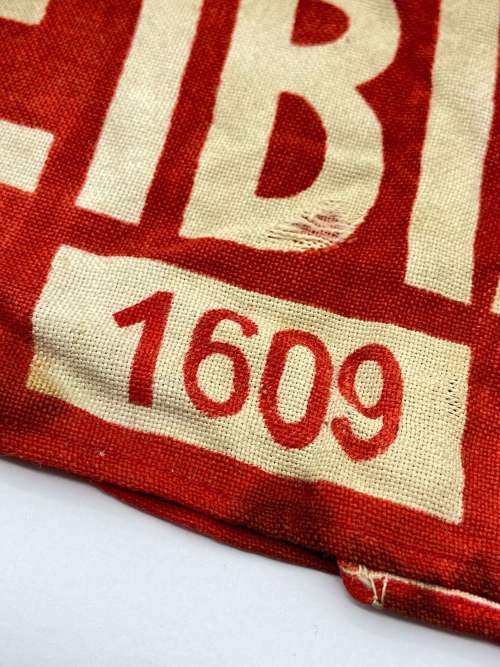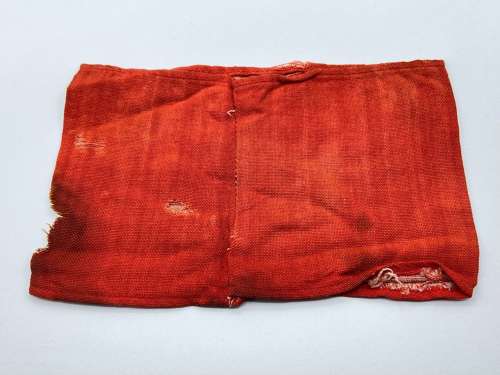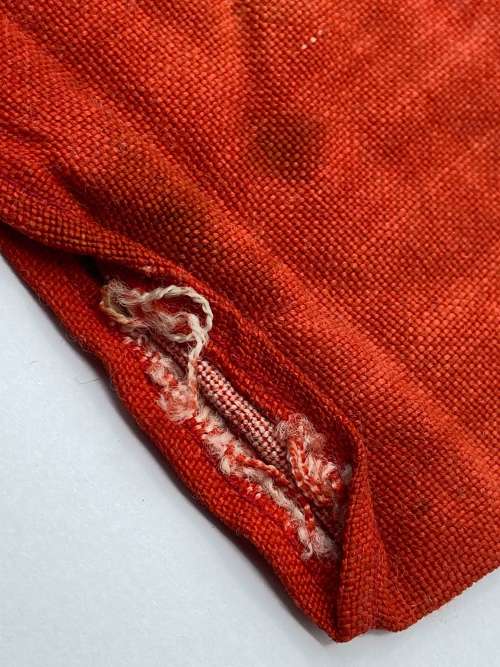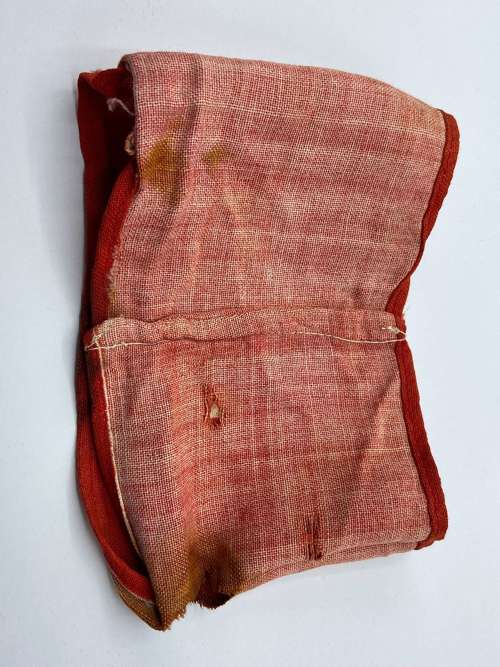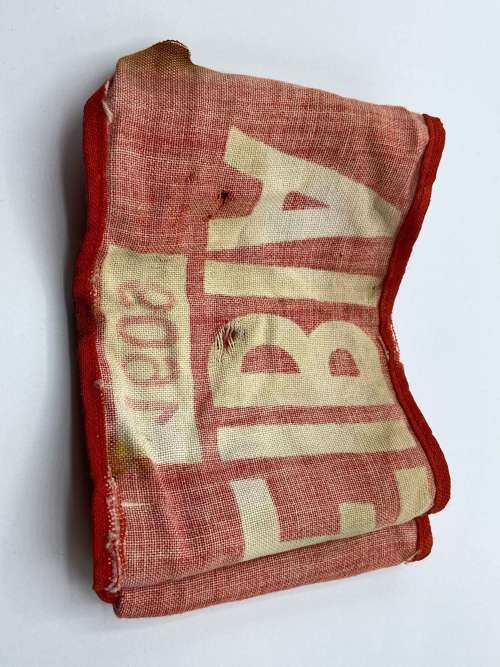WW2 German Holocaust Forced Labour EIBIA Gunpowder Factory Armband
Delivery Quote Request
Please fill in the form below to request a delivery quote from Atlas Antiques.
Contact Atlas Antiques
 Dorset, United Kingdom
Dorset, United Kingdom
Simply fill in the below form to get in touch with Atlas Antiques regarding this item.
About this item
For sale is an exceptionally rare WW2 German Holocaust Forced Labour EIBIA GMBH Gunpowder Factory Armband. This armband was issue number 1609.
The EIBIA G.m.b.H. for chemical products was a German chemical and aging company based in Bomlitz in the southwestern Lüneburg Heath. It developed from 1938 until the end of the Second World War to become the largest producer of gunpowder in the German Empire with five production facilities at three locations. Originally, the three large Eibia companies Walo II, Weser and Karl had been planned as "shadow works"; that is, they should only start operations in the event of mobilization. However, the beginning of the Second World War was before the completion of the operating facilities, so that production was started immediately. Each of up to 70 companies were commissioned for their construction. In addition, theReich Labor Service (RAD) and after the beginning of the war numerousForced laborers from various European countries. It is becoming apparent that the conditions for the construction of the individual plants differ significantly. The construction of the Bomlitz plants began before the Second World War, whereas the plants on the Mittelweser were built during this time. As a result, the construction process here was characterized by forced labor from the outset. In the Weser plant, the construction was largely the responsibility of theOrganization Todt, for those in the West, close to today'sB215, a forced labor camp had been set up. At AnlageKarl bei Liebenau, the proportion of foreign workers was particularly high with over 80%, which was criticized by state authorities as a security risk (for similar companies, the proportion was 50%). The extremely poor state of health of the assigned prisoners of war from the Soviet Union made them largely unable to work. Already in the construction phase, at least 600 out of over 2000 of them died, especially fromRuhr,typhoid and Tuberculosis. In 1940, theGestapo Hannover on the outskirts of Liebenaulabor education camp for about 250 to 500 prisoners, which seemed to act not least as a disciplinary threat to the forced laborers. The storage conditions there were probably similar to those of a concentration camp.[ 8] It was in May 1943 afterLahde misplaced. A camp outside the Eibia camp was also set up in Benefeld in 1944. From August 1944, in theBergen-Belsen concentration camp female prisoners, especially from theAuschwitz-Birkenau concentration camp, some of which were redistributed to external commands; which was built in September 1944However, subcamp Benefeld subcamp existed for only six weeks. The managers and the technical staff initially came mainly from the company Wolff & Co., which had exempted them for this. After the beginning of the Second World War, the other workers increasingly consisted of so-called foreign workers who were initially recruited as volunteers or at least formally volunteers from the occupied countries. These employment relationships became increasingly compulsive in the course of the war. In theProtectorate of Bohemia and Moravia,Poland and theSoviet Union became forceful people able to work from the outsetrecruited and transferred to the German arms industry. Also at their deployment sites such as the Eibia companies, they were treated significantly worse than the workers from countries of Central and Western Europe and only housed in wooden barracks in accordance with detailed specifications of the Army Weapons Office and the associated Montan G.m.b.H. Forced laborers as well as prisoners of war from Eastern Europe (referred to as "Eastern workers") were also used in the most dangerous production areas. Despite the structural and organizational safety precautions (one-way traffic, protective walls, blow-out walls, curved hollow path systems, special extinguishing devices, distances), there were several explosion and fire accidents in all companies, often also causing deaths. Some workplaces brought special health hazards due to unprotected handling of chemicals. The humanitarian situation in the Karl plant developed particularly problematic. During the construction under great time pressure and the subsequent production phase, a total of around 2000 people were killed by malnutrition, arbitrariness, depressing and diseases. This is an exceptionally rare armband. This is the first one to come onto the online market! This will be sent via special delivery and dispatched within two working days.Disclaimer: Items related to the Nazi regime or the Third Reich sold by dealers on this platform are intended solely for educational, historical, or TV/film prop purposes. Militaria Zone does not promote, and is strongly against, the hate ideologies and atrocities committed during WWII.
The law regarding sales of items like this vary depending which country you are in. If in doubt, please check the law in your country.
Additional Information
![]() Dorset, United Kingdom
Dorset, United Kingdom
Atlas Antiques Promises You - Fresh stock weekly - Fair & affordable prices - Everything listed is original, money back guaranteed. (Unless marked fantasy or reproduction). - Fast responses and delivery's made within 2-3 working days. Atlas Antiques only handles items in terms of...

